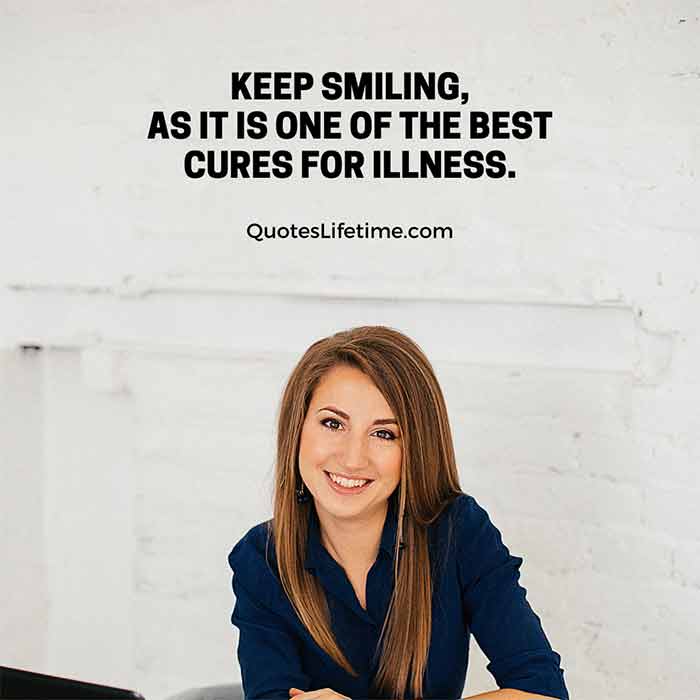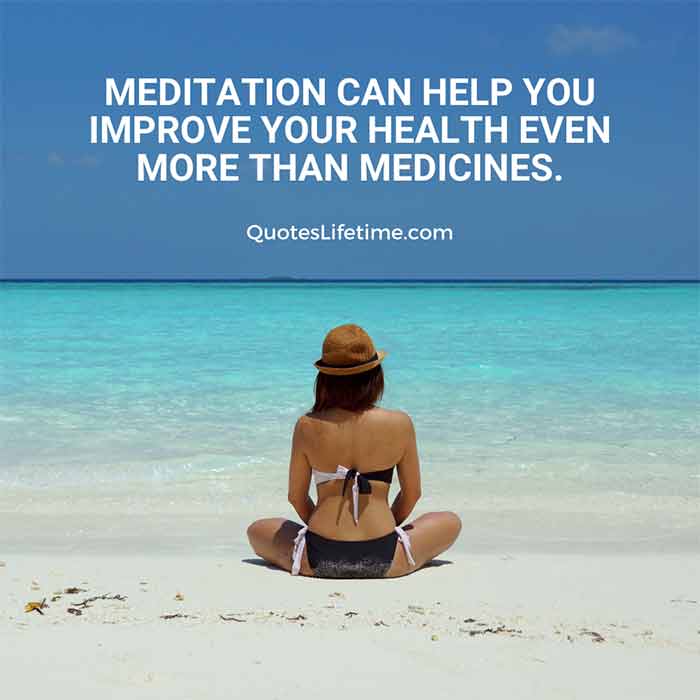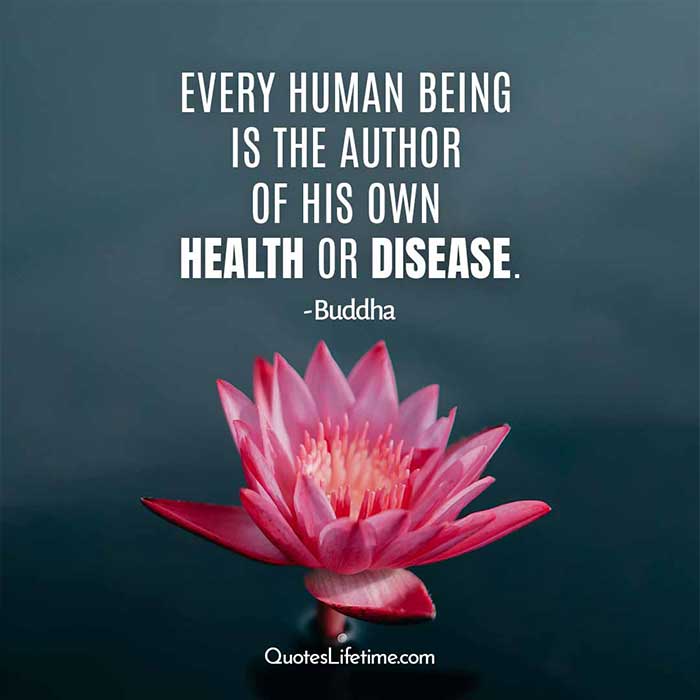|
|
|

|
|
BE CHEERFUL |
Cheerfulness Makes the Job Easier: For a patient, it’s easy to get depressed, lose hope or feel frustrated. When you get injured, in pain, lose your independence, and are forced to live away from home, it’s difficult to feel positive or happy. Additionally, as a caregiver, seeing people in pain, depressed, angry, or frustrated every day can prove quite trying. It takes a lot of patience and compassion to serve others who are challenged by difficult situations.
In both cases, cheerfulness makes the “job” easier. Put a smile on your face, say a kind word, crack a joke, or offer a positive thought. You’ll be amazed at the response you get from the other person—and at how much easier that you have to do becomes. Patients become more relaxed and willing to comply with requests, and caregivers become kinder and more willing to help and listen.
Approach Challenges with a Cheerful Attitude: We all encounter difficult situations in life. Your situation might be different. You could struggle with a horrible boss, long work hours, or a project from hell. Your marriage could be failing. Maybe you’ve had surgery or suffer from a long-term illness. You could have business or financial concerns. The struggle or challenge doesn’t matter. A cheerful attitude makes whatever you are going through easier to bear. It also helps you deal with it with less stress.
Practice Cheer: What about you? Can you keep a cheerful countenance despite life’s challenges? Can you flow through your days with a smile on your face, and a kind and uplifting word for all you meet—no matter what is happening in your life or theirs? Can you make others happy and ease their pain simply by being cheerful?
It takes practice, but I know you can do it. Let your inner light shine, and the world will be a brighter place. After all, your essence isn’t dark and sad. It’s bright and cheery. Be cheerful, and you’ll see the light in every face that cheerfully reflects your light back at you.
|
 |
|
|
|

|
|
WILL POWER |
Contrary to popular belief, willpower is not an innate trait that you're either born with or without. Rather it's a complex mind-body response that can be compromised by stress, sleep deprivation and nutrition and that can be strengthened through certain practices. In a just-published book based on her popular Stanford Continuing Studies course, Stanford health psychologist Kelly McGonigal, PhD, took a closer look at the science of willpower and examined the latest research on the topic. In the Q&A below, she shares some of her thoughts.
Psychologists have found that willpower is a lot like stress: It’s not just a psychological experience, but a full-blown mind-body response. The stress response is a reaction to an external threat, for example a fire alarm going off. In contrast, the willpower response is a reaction to an internal conflict. You want to do one thing, such as smoke a cigarette or supersize your lunch, but know you shouldn’t. Or you know you should do something, like file your taxes or go to the gym, but you’d rather do nothing.
The need for self-control sets into motion a coordinated set of changes in the brain and body that help you resist temptation and override self-destructive urges. It’s called the pause-and-plan response and it puts your body into a calmer state, unlike the adrenaline rush of stress. It also sends extra energy to the brain’s prefrontal cortex, which keeps track of your goals and helps you override impulses and cravings. The result is you have the mindset and motivation to do what matters most.
Pioneering research psychologist Roy F. Baumeister collaborates with New York Times science writer John Tierney to revolutionize our understanding of the most coveted human virtue: self-control. Drawing on cutting-edge research and the wisdom of real-life experts, Willpower shares lessons on how to focus our strength, resist temptation, and redirect our lives. It shows readers how to be realistic when setting goals, monitor their progress, and how to keep faith when they falter. By blending practical wisdom with the best of recent research science, Willpower makes it clear that whatever we seek—from happiness to good health to financial security—we won’t reach our goals without first learning to harness self-control.
|
 |
|
|
|

|
|
WORTH OF HEALTH |
Life has changed in ways both big and small over the last year. Plans were suspended and priorities shifted as we cautiously made our way through a situation that we had never experienced, much less imagined would happen. As we get closer than ever to putting the COVID-19 pandemic behind us – thanks to wider vaccine distribution and safe practices to slow the spread of the virus – many of us are looking forward to getting back to the things we’ve been missing – planned vacations on pause, suspended social gatherings, even just dropping by a friend’s or loved one’s for a coffee catch-up.
There is one priority, however, that we have all shared during the pandemic that should remain high on your list: your health. If there is one thing, we have collectively learned over the last year it is that – in short – your health means everything.
We have put a lot of time and energy into protecting ourselves and others from COVID-19, and that is very important and worthwhile. But taking care of your health means a lot more than successfully staying virus-free. It means taking charge of your health so you can stay on top of any issues that arise before they become serious. It means not delaying the care you need to feel better and get healthier so you can fully enjoy all of those things we’ve been missing lately.
Credit:https://www.centralcarolinahosp.com
|
 |
|
|
|

|
|
KEEP SMILING |
They say it takes more muscles to frown than to smile, and although there’s no hard evidence to support that, we do know that smiling comes with some real-life benefits. It’s not always the easiest thing to do, especially after a long and stressful day. But if you can take it upon yourself to crack a smile, you’ll actually feel better.
When you smile, your brain releases tiny molecules called neuropeptides to help fight off stress. Then other neurotransmitters like dopamine, serotonin and endorphins come into play too. The endorphins act as a mild pain reliever, whereas the serotonin is an antidepressant. One study even suggests that smiling can help us recover faster from stress and reduce our heart rate. In fact, it might even be worth your while to fake a smile and see where it gets you. There’s been some evidence that forcing a smile can still bring you a boost in your mood and happiness level. That being said, if you’re suffering from depression or anxiety you should talk to your physician immediately to find the best treatment for you.
It turns out the benefits of smiling aren’t just limited to yourself — it can also affect those around you too. We’ve already talked about how our brains react when we smile, but we’re also rewarded when we see someone else smile too! The reward center of our brain is activated and it makes us feel a little better. Plus, one Swedish study suggests that we can’t help but react with a smile of our own when we see someone smiling — so it’s an all-out infectious loop of happiness.
Feel-good benefits aside, smiling and happiness can actually affect your job performance. A team of economists performed a study and found that “human happiness has large and positive causal effects on productivity. Positive emotions appear to invigorate human beings, while negative emotions have the opposite effect." Another study linked decision-making, processing and learning to the release of dopamine triggered by happiness, so smiling can also make you a more creative and efficient worker.
So, the next time you’re feeling like a pick-me-up, try busting out a toothy grin and it could give you the lift you’re looking for. And if you’re already in a good mood, why not flash those pearly whites at a stranger and pass along the good vibes?
Credit: https://www.sclhealth.org
|
 |
|
|
|

|
|
MEDITATION |
Meditation has been practiced for thousands of years. Meditation originally was meant to help deepen understanding of the sacred and mystical forces of life. These days, meditation is commonly used for relaxation and stress reduction. Meditation is considered a type of mind-body complementary medicine. Meditation can produce a deep state of relaxation and a tranquil mind. During meditation, you focus your attention and eliminate the stream of jumbled thoughts that may be crowding your mind and causing stress. This process may result in enhanced physical and emotional well-being.
Benefits of meditation
Meditation can give you a sense of calm, peace and balance that can benefit both your emotional well-being and your overall health. And these benefits don't end when your meditation session ends. Meditation can help carry you more calmly through your day and may help you manage symptoms of certain medical conditions. When you meditate, you may clear away the information overload that builds up every day and contributes to your stress. The emotional benefits of meditation can include: Gaining a new perspective on stressful situations, building skills to manage your stress, increasing self-awareness, focusing on the present, reducing negative emotions, increasing imagination and creativity, Increasing patience and tolerance.
Types of meditation
Meditation is an umbrella term for the many ways to a relaxed state of being. There are many types of meditation and relaxation techniques that have meditation components. All share the same goal of achieving inner peace. Ways to meditate can include: a) Guided meditation. Sometimes called guided imagery or visualization, with this method of meditation you form mental images of places or situations you find relaxing, b) Mantra meditation. In this type of meditation, you silently repeat a calming word, thought or phrase to prevent distracting thoughts, c) Mindfulness meditation. This type of meditation is based on being mindful, or having an increased awareness and acceptance of living in the present moment, d) In Transcendental Meditation, you silently repeat a personally assigned mantra, such as a word, sound or phrase, in a specific way.This form of meditation may allow your body to settle into a state of profound rest and relaxation and your mind to achieve a state of inner peace, without needing to use concentration or effort, e) Yoga. You perform a series of postures and controlled breathing exercises to promote a more flexible body and a calm mind. As you move through poses that require balance and concentration, you're encouraged to focus less on your busy day and more on the moment.
|
 |
|
|
|

|
|
CARL SEGON |
We humans are one among millions of separate species who live in a world burgeoning, overflowing with life. And yet, most species that ever were are no more. After flourishing for one hundred fifty million years, the dinosaurs became extinct. Every last one. No species is guaranteed its tenure on this planet. And humans, the first beings to devise the means for their own destruction, have been here for only several million years.
We are rare and precious because we are alive, because we can think. We are privileged to influence and perhaps control our future. We have an obligation to fight for life on Earth — not just for ourselves but for all those, humans and others, who came before us and to whom we are beholden, and for all those who, if we are wise enough, will come after. There is no cause more urgent than to survive to eliminate on a global basis the growing threats of nuclear war, environmental catastrophe, economic collapse and mass starvation. These problems were created by humans and can only be solved by humans. No social convention, no political system, no economic hypothesis, no religious dogma is more important.
The hard truth seems to be this: We live in a vast and awesome universe in which, daily, suns are made and worlds destroyed, where humanity clings to an obscure clod of rock. The significance of our lives and our fragile realm derives from our own wisdom and courage. We are the custodians of life’s meaning. We would prefer it to be otherwise, of course, but there is no compelling evidence for a cosmic Parent who will care for us and save us from ourselves. It is up to us.
|
 |
|
|
|

|
|
BUDDHA |
The greatest “wealth is health.” A healthy lifestyle involves both choice and action. The choices you make each day, and the actions you take on those choices, can lead to a healthier lifestyle. Making positive choices in the areas of physical fitness, stress, and nutrition and then acting on those choices ,promotes a sense of better self-worth, happiness and overall well-being.
We live in a world satisfied by instant gratification and adversed to discomfort. We value material goods over personal health and often welcome dis-ease into the body by creating and maintaining an environment for disease to thrive. We have magic pills at our fingertips and professionals endorsing them. I get it. It’s easy. It’s convenient. It provides quick relief and doesn’t require the discomfort of change. The pros are there, but do you ever stop to truly consider the cons of accepting the short-cuts being offered?
Below you’ll find 5 benefits experienced when long term health is pursued.
1. Decreased risk of disease. Dis-ease in the body occurs when it’s stressed, nutritionally imbalanced, and/or neglected of self-care. Often times, these occur simultaneously. To bring the body back into a state of balance, it’s essential we begin to adopt more sustainable behaviors. These behaviors are by no means difficult, they’re just different than the ones you currently subscribe to. Remember, life is a practice, not a performance.
2. More life-force energy. It is physically impossible for the body to have optimal energy when inundated with poor quality foods, chemicals, and long-term stress. Each of these respond negatively in the body and inhibit its ability to sustain energy levels for extended periods of time. Give the body what it requires and desires, such as wholesome nourishment, sunlight, clean water, and movement, and you will experience a dramatic shift in your daily energy levels.
3. Increased happiness, less depression. The gut contains 100 million neurons and is responsible for secreting major neurotransmitters like serotonin, dopamine, glutamate, norepinephrine and nitric oxide. When we nurture the health of our gut, we invite these feel-good chemicals to be secreted more easily and more frequently, thus influencing the state of our mood.
4. Increased feelings of self-worth. As you begin to experience mood shifts and desirable body changes, you will begin to make self-care a priority. Simple as that.
5. Save money. Leading a lifestyle of healthy behaviours allows for more money in your pocket by increasing work productivity, eradicating doctor visits, and decreasing missed work due to feeling ill and unwell. You’ll have extra funds to do things you love with those you love!
Quite literally, there are infinite benefits one will receive by way of pursuing a healthy lifestyle. I have chosen to showcase these 5 benefits for I feel they are most applicable to the quality of a human being’s life on a day-to-day basis.
Drink water, eat well, move the body, and choose to be grateful for this gift of Life!
Wishes of Wellness,
Natalie
|
 |
|
|
|
|
|
| |
|





















